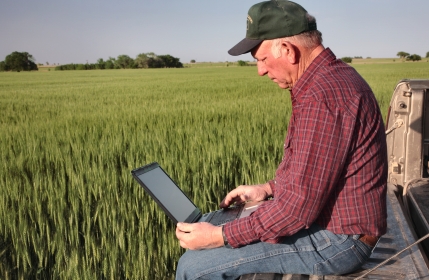Losing Your Agricultural Exemption
If you’ve lost your ag exemption, then you’ve received the tax bill and know what it is, but in case you don’t know what an agricultural exemption is, here it is quickly.
Agricultural Exemption Defined
If your property is deemed by an appraisal district appraiser to have a higher and better use in agricultural production, than say, commercial or industrial use, it will be given that value and taxed as such; those higher taxes will be deferred as long as the property remains in agricultural production. From a landowner point of view, this deferment of taxes is great if you like paying fewer taxes.
Losing Your Agricultural Exemption – the 5 year lesson
When you take your land out of ag production, either on purpose or by accident or by just not knowing any better, it will be taxed at it’s highest and best use, which is generally considerably higher than agricultural use. Most landowners don’t like that bill, but here is the really bad part: once your land is considered out of agricultural production, it has to be put back into agricultural production for five (5) years before the landowner will be given the exemption again. Yep, you’re stuck for five years of paying non-agricultural taxes. So lets talk about how to prevent this.
Keeping Your Ag Exemption
Farming is the easiest to spot, there are tractors and black dirt flying and seed getting spread. But there are certain times of the year farmers plant certain crops, and the appraisers know it, and if that’s your claim, you’ll need to show them the records, such as seed and fertilizer bills from the feed store, most likely from Williamson County Grain. Even if your crop doesn’t make, you’ll need to show proof you attempted.
Hay is a good crop, but again, document your efforts because during our recent drought, it was hard to tell.
Ranching is also a good, but a single cow usually doesn’t do it. Based on the foliage available on your land, you’ll need to have adequate heads to call it production. What is that number? I can’t tell you, but experienced ranchers can tell you and the gurus at Texas A&M can tell you. You’re going to need a qualified opinion.
The cow business, as an example, is different than the horse business. In the cow business, you can make money by making more cows (calves) or by making skinny cows into fat cows, since cows are often sold by weight. Usually, having cows on your property will defend your claim, but horses are different.
It generally isn’t enough just to have horses. Even if your horses grow, they usually aren’t sold by weight. That means you need to be making little horses (foals). And depending on the size of your property, that can be a lot of foals.
Goats are good, but know that the fence to keep goats is different than the fence to keep cows, and the appraisers know it.
Orchards are good too, but that will mean you’ll need all of your property making pecans (or the orchard of your choice) to get the ag exemption on all of your property.
Leasing Your Property For Agricultural Exemption
Most often, I tell new property owners to lease their property to a professional farmer/rancher. These guys know what they are doing and can defend their practices, but be sure you have a written lease. Also keep tract of them, they can move animals from one pasture to another, which is smart as a rancher but may be an issue because the pasture is at rest. If there are no cows on your property when the appraiser drives by, there’s a problem. Document, document, document. Know that you may be showing up at the appraisal district defending your agricultural exemption with your farmer/rancher in tow.
I had one client whose rancher died and the family sold his cows, and by the time the landowner figured that out, he had lost his exemption for 5 years.
Pictures
I tell most of my clients to take pictures with date stamps – silly pictures showing the rancher at work or the farmer sowing seed or you fixing fence. These always help defend your case. A minute of taking picture can save you a lot of tax pain. Be sure to know that the appraiser will have his or her own pictures!


Comments are closed.